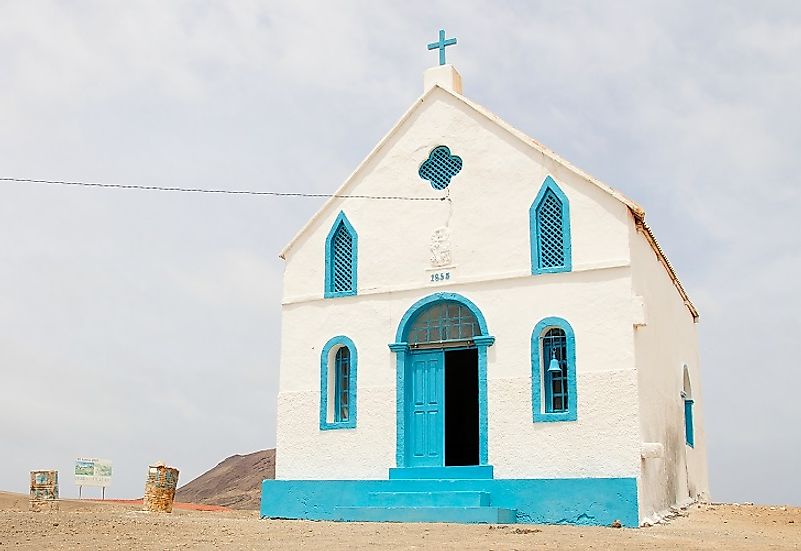Religious Beliefs In Cabo Verde

Cape Verde is an African island nation situated upon a volcanic archipelago in the Atlantic Ocean off of the West African coast. The country is comprised by ten islands and five islets. More than three-quarters of Cabo Verdeans are Roman Catholic, introduced to the island by Portuguese who colonized the country. The constitution in Cape Verde allows for freedom of worship and stipulates that the Church and the State are two separate institutions. There is no state religion in Cape Verde. These factors have encouraged the growth of other religious beliefs such as Protestants and Islam.
Roman Catholicism
77.3% of Cabo Verdeans adhere to Roman Catholic beliefs. The Roman Catholic religion can be traced to as early as 1533 during the Portuguese occupation in Cape Verde. Missionaries such as the Capuchin Monks and Franciscans trooped to Cape Verde starting the mid-15th Century and promoted practices such as the baptism of slaves upon their arrival in the islands.
The church has long played an important educational and social role in Cabo Verdean society. Priests established schools and sponsored students to study abroad. The church also kept documentation of bio data such as birth, death, and marriage. The Roman Catholic was the dominant church until the 20th Century.
Today, there are over 430,000 Roman Catholic followers across the country. Saints’ days are the most celebrated festivities affiliated to the Roman Catholic congregation. These days involve eating, drinking, music, and dance processions that bring together Cape Verdean communities. Cape Verdeans incorporate their culture into church services which are unique to the islands.
Protestants and Other Non-Catholic Christians
Around 8.1% of Cabo Verdeans are Christians not affiliated with the Roman Catholic Church. The Protestant movement among Cabo Verdeans started in the late 19th Century with the American immigrants from Cape Verde. Cabo Verdean returnees who had been exposed to this movement promoted Protestant ideas across the islands. The Portuguese viewed this movement as a threat to Roman Catholic dominance and enacted a law criminalizing other religious apart from Catholic. The Protestant Movement in Cape Verde, however, continued to rise, and there are hundreds of Protestant Churches in Cape Verde today. These churches include Church of the Nazarene, Seventh Day Adventists, Mormons, and Baptists.
Islam
Around 1.8% of Cabo Verdeans identify with the Islamic faith. The Muslim population in Cape Verde has been growing steadily in the past few years. These Muslims are mainly immigrants from other African countries, particularly West African countries such as Senegal and Guinea-Bissau. There are several mosques spread out across the islands and the Muslim community celebrates important events in the Muslim calendar such as Ramadan.
Other Religious Minorities
10.8% of Cabo Verdeans are either atheist or agnostics, while 2.0% of the total population profess to beliefs other than those listed above. Future trends in Cape Verde predict Roman Catholicism’s declining dominance due to growing secularism. Protestant Churches have been growing in population, and this trend is expected to continue. The Muslim population is also expected to increase by a small margin. The Roman Catholic is expected to continue being the dominant religion in Cape Verde.
Religious Beliefs In Cape Verde
| Rank | Belief System | Share of Cabo Verdean Population |
|---|---|---|
| 1 | Roman Catholic Christian | 77.3% |
| 2 | Protestant and Other Non-Catholic Christian | 8.1% |
| 3 | Atheist or Agnostic | 10.8% |
| 4 | Other Beliefs | 2.0% |
| 5 | Islam | 1.8% |







